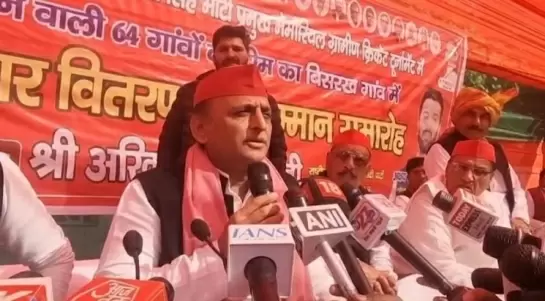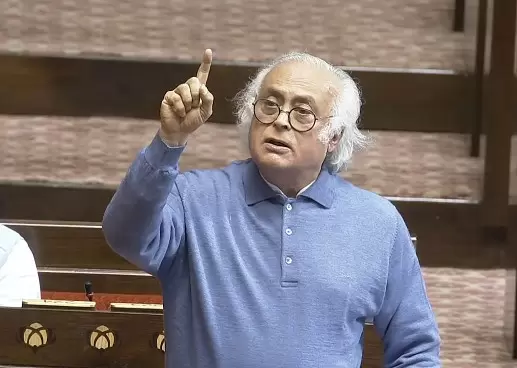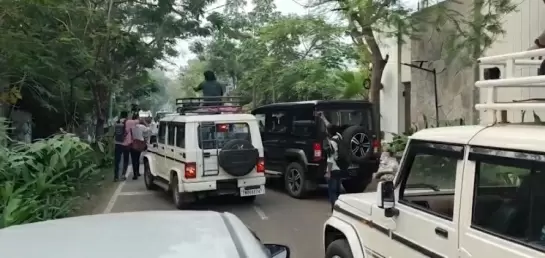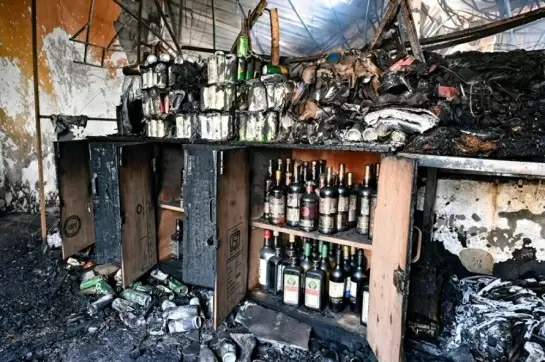Shifting Gears, How a Housewife Turned into a Hotshot Truck Driver and Popular Vlogger
08-December-2023
Vol 14 | Issue 49
On the Simsang River Bridge, Jelaja Ratheesh is showing us a thrilling spot in Meghalaya. Turning the camera, she points out, "That side is the Bangladesh border, and here, we are in India."
From valleys to mountains, and rivers to beaches, Jelaja, India’s hotshot woman truck driver and a popular vlogger, has journeyed across India’s most thrilling locales in her truck.
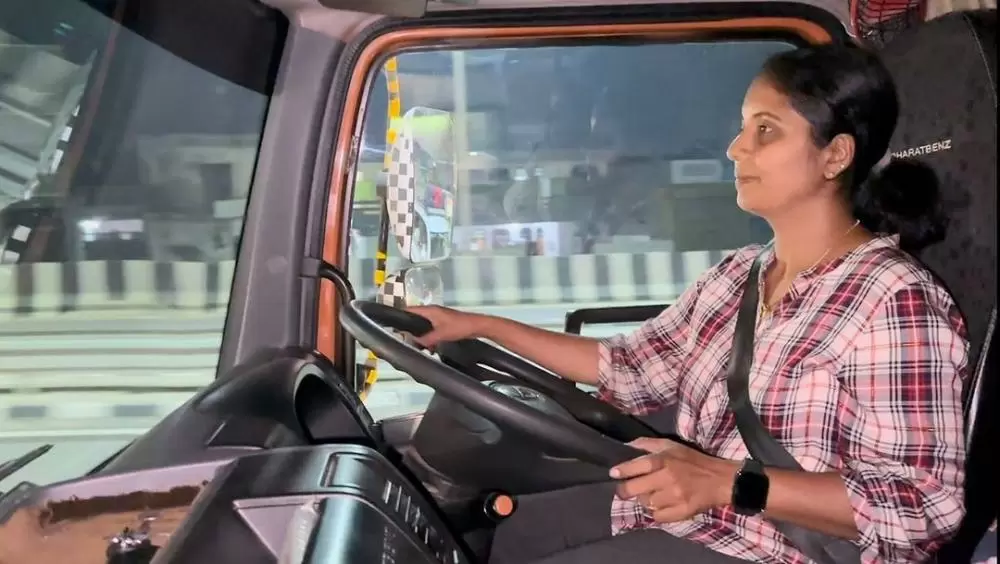
| In the driver's seat: Jelaja Ratheesh transitioned from homemaker to trucker (Photos: Special Arrangement) |
She doesn't just show her viewers the sights; Jelaja immerses them in the local life and food. She's more than a tourist; she's a travel lover who explores every bit of the country for her job.
Many dream of travelling and meeting new people. Travel buffs often attempt to explore different cultures, create memories and share it with the world. But such global adventures often come with a hefty price tag.

For 42-year-old Jelaja, this passion for travel led her to blend her job with her love for journeys, resulting in her “Puthettu Travel Vlog.” Here, she shares snapshots of enchanting places she travels to, like Kashmir and Meghalaya, places many only dream of visiting.
Her husband, Ratheesh, is the founder of Puthettu Transports in Kottayam, Kerala. Starting as a truck driver, Ratheesh began his transport business in 2003 with just one six-wheeler truck, bought with a bank loan of Rs. 6 lakh.
Today, Ratheesh has expanded to a fleet of 27 trucks with nationwide permit, managing Puthettu Transports with his brother.
Jelaja, holding a BA degree in history, was just another homemaker living in a joint family, comprising her husband, two daughters, mother-in-law and her brother-in-law’s family.
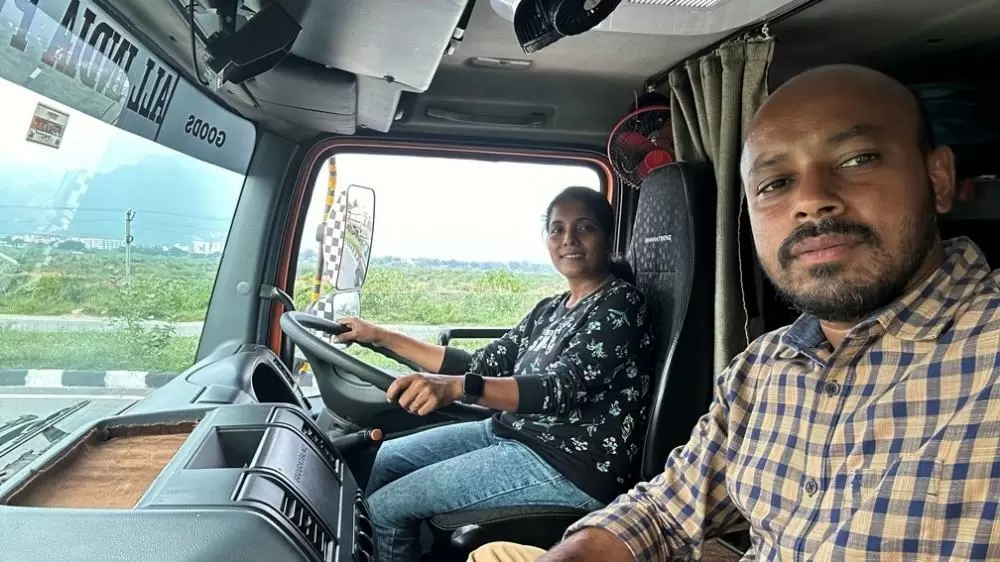
| Jelaja's husband accompanies her in all her trips |
However, the zeal to explore something new, and with encouragement from her husband, Jelaja first learnt to ride a two-wheeler, then started driving a car, and ultimately a 12-wheeler truck in 2018!
“When I asked my husband if I could join him during his cross-country travel while transporting goods, he said yes, you can, but only if you drive the truck,” she says.
Most women might have just laughed off the suggestion, but Jelaja took it seriously and learnt to drive a truck and joined her husband who carried loads to different parts of the country.
“My children are taken care of by my family back home,” says Jelaja. “The elder daughter, aged 20, is doing her B.Com second year, while the younger one is 18 and is in her BBA first year.
“My 10-member joint family is my strength. I can go on my trips peacefully, knowing pretty well that my children are safe at home.” Occasionally, the daughters join their parents on trips.
Kerala is ahead in terms of women drivers. In 2022, out of around 11 lakh people who got their learner's licenses in the state, 40.87% were women. It's common to see women driving two-wheelers and cars, but a woman driving a truck is a rare sight.
Women also frequently drive buses and cabs in Kerala. Ratheesh points out that while bus drivers can return home daily, a woman truck driver might have to be on the road for 15 to 20 days non-stop.
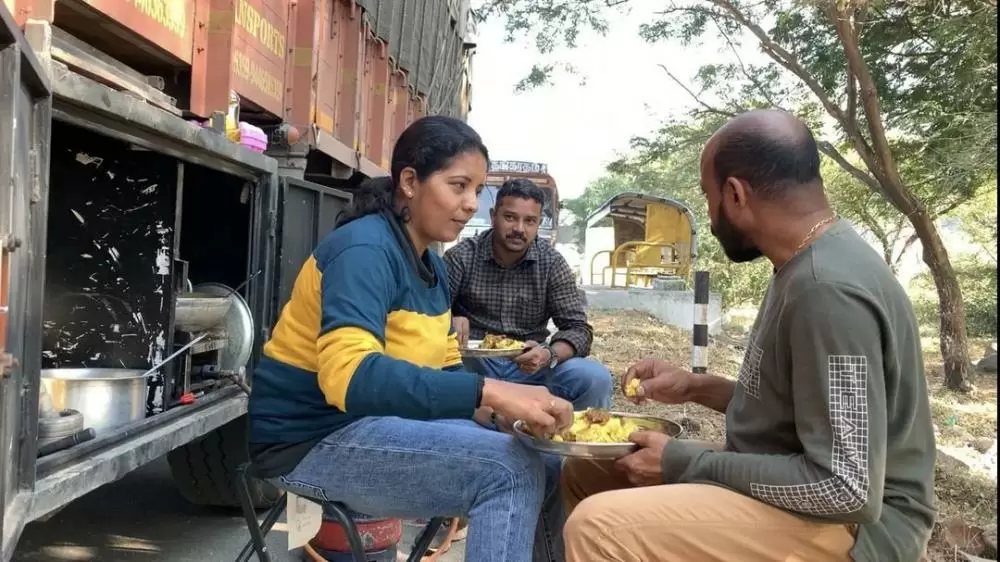
| Food stop after a tiring journey. Jelaja and Ratheesh cook their own food |
Over the past year and a half, the couple has traveled to places like Nepal, Kashmir, Porbunder, Orissa, Kolkata, Meghalaya, and Mumbai.
Jelaja talks about the challenges as a woman truck driver, especially regarding facilities on highways.
"Finding clean washrooms is a big issue, especially in North India. I usually avoid dhabas and use facilities at toll booths or petrol pumps instead. Both of us work very hard, we sometimes don’t have food on time, driving is tiring.
They also need to deal with corrupt policemen. "We often pay up to Rs. 1,500 at check posts and to policemen, even with all documents in place, and sometimes even with an empty truck. The situation is worse in Madhya Pradesh, Rajasthan, and Maharashtra, compared to the southern states."
However, Ratheesh proudly mentions that Jelaja commands respect from policemen and toll booth workers when she's at the wheel.
“We usually keep our speed under 60 km/h, as the normal speed for a lorry is between 45-55 km/h. Driving faster can damage the wheels and uses more diesel,” he explains.
Ratheesh shares that there are times when Jelaja has driven non-stop from morning till evening. “Most of our travel is on highways and bypasses, and we spend very little time in cities.”
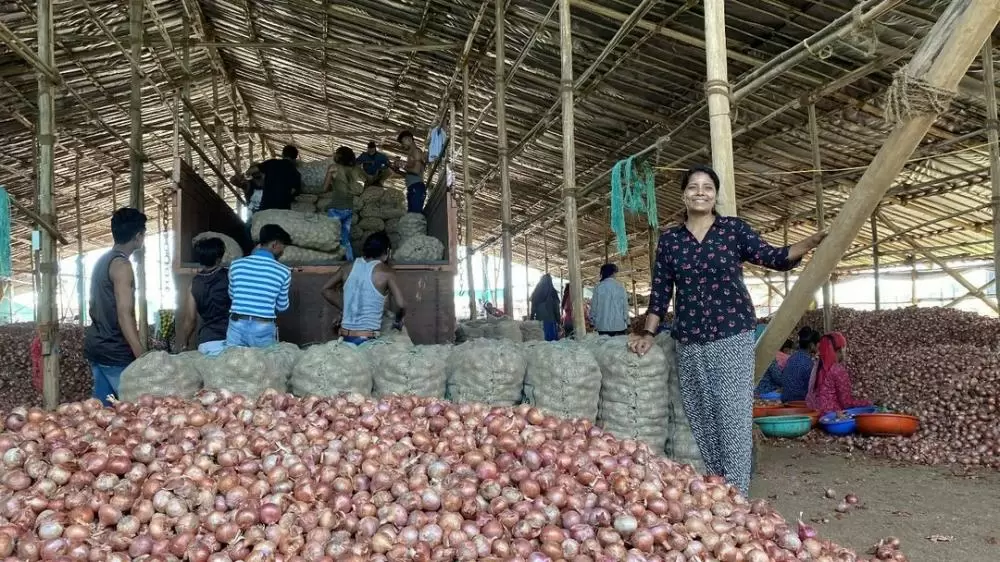
| Onions being loaded on the truck as Jelaja gears for the trip |
They once had to transport a load from Kerala to Hyderabad, and then picked up another consignment for Nepal. They always make sure not to travel empty, waiting for a new load if necessary.
On one trip, they had to wait for about 5-6 days in Hyderabad. Another time, on a trip to Kashmir, they found no return load, which is common outside the apple season. As a result, they had to travel all the way to Haryana to pick up another consignment.
Their journeys often involve carrying various items like plywood to Pune from Kerala, then onions to Kashmir. Their typical cargo includes rubber, pineapple, onion, other fruits and vegetables, plywood, and chemicals.
"The turning point was our Kashmir journey. The videos and photos got a lot of attention. That's when we thought of launching our vlog," says Jelaja.
Reflecting on his journey from truck driver to successful business owner, Ratheesh shares, "We bought all our trucks between 2015 and 2019 with bank loans. Each cost around Rs 25-28 lakh back then. They're all BharatBenz vehicles.”
He adds, "Our drivers work on a per-trip basis, not as regular employees, and earn 10-15% of each trip's revenue. This approach, common in Kerala and Tamil Nadu, ensures they make Rs. 35,000-45,000 a month.”
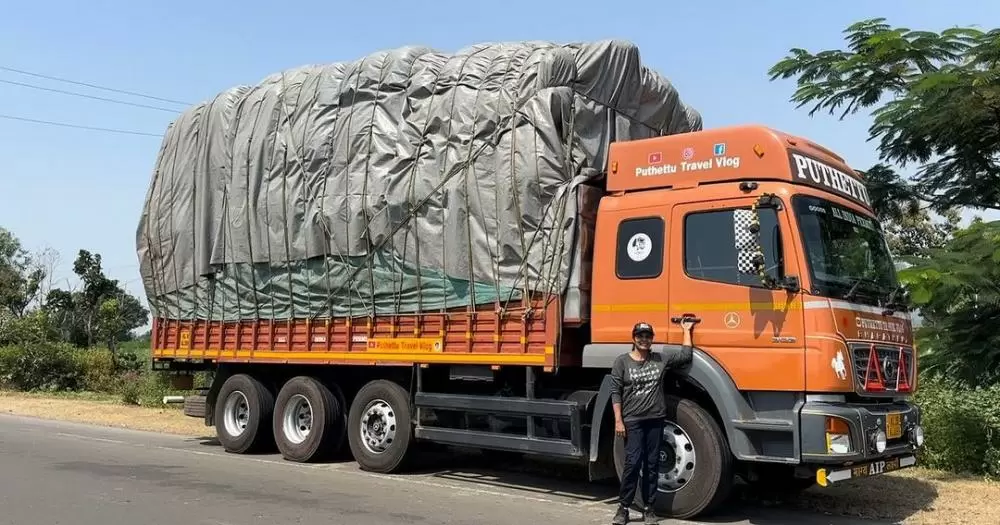
| Jelaja preparing to mount the vehicle for a long journey |
The main expenses in trucking are tyres, diesel, and FastTag. Radial tyres have a lifespan of 80,000 to 1 lakh km, depending on load, while nylon tyres last half as long.
“We always choose tubeless tyres. For each truck, we spend about Rs. 1.5 lakh annually on insurance and taxes," says Ratheesh.
The couple faces various challenges on their travels, but they embrace the adventure with enthusiasm.
Beyond the regular harassment at check posts, they are also wary of the more serious danger of highway robbers, who could steal their diesel, goods, or belongings. "Having driven on highways since 1998, I'm not afraid of these threats," says Ratheesh. - ©TWL











